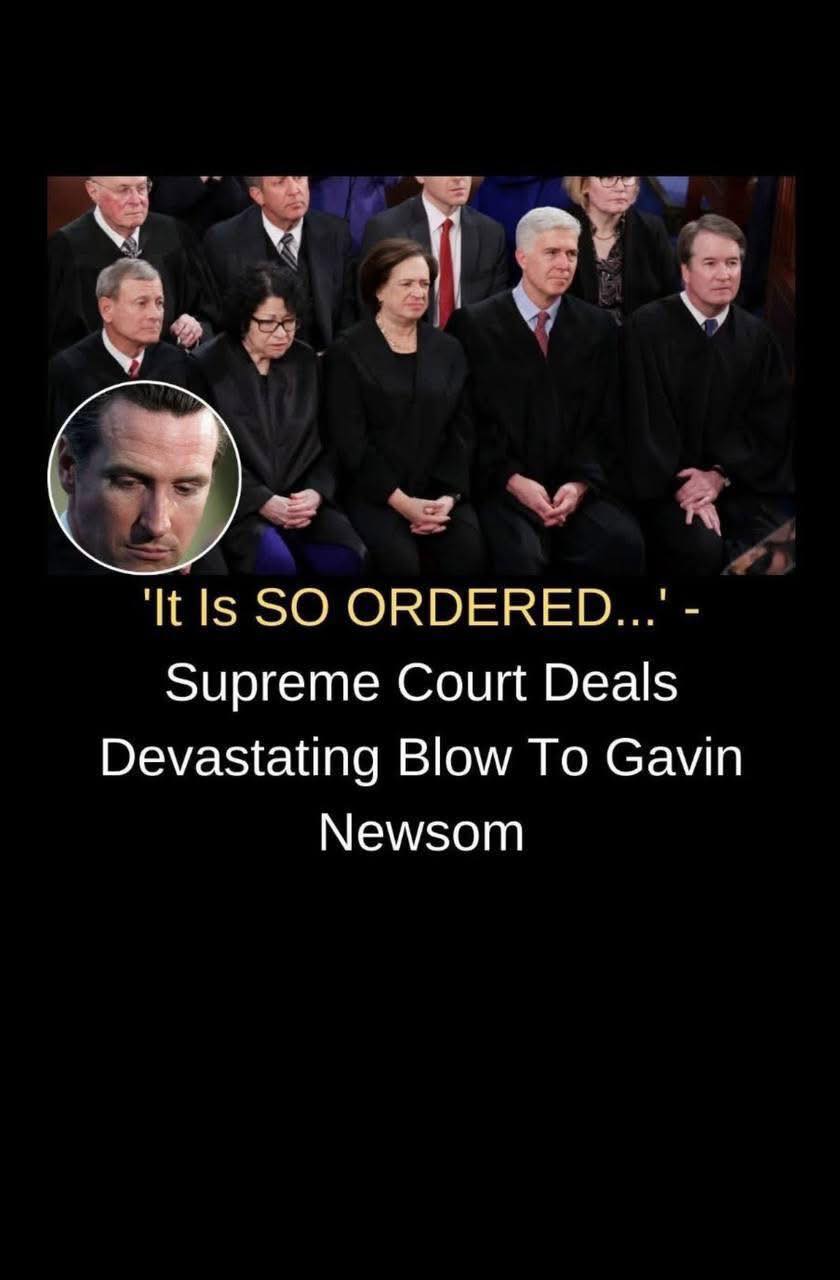In a significant legal development, the U.S. Supreme Court has ruled against California’s ambitious push to phase out gas-powered cars, dealing a setback to Governor Gavin Newsom’s aggressive climate agenda. The decision, issued in a 7–2 vote, clears the way for energy producers to move forward with a lawsuit against the Environmental Protection Agency (EPA) over its approval of California’s regulations.
The Core of the Case
At issue is California’s requirement that by 2035, nearly all new vehicles sold in the state must be electric. Newsom has promoted the mandate as part of a broader plan to achieve “carbon neutrality,” positioning California as a national leader in climate action. However, opponents argue that the policy amounts to government overreach and imposes unrealistic burdens on automakers and consumers.
Justice Brett Kavanaugh, writing for the majority, stated that businesses directly targeted by these regulations have the right to challenge them in court. He criticized the EPA for shifting its legal positions, noting that its inconsistent interpretation of the Clean Air Act weakened its defense.
“The government generally may not target a business or industry through stringent and allegedly unlawful regulation, and then evade the resulting lawsuits,” Kavanaugh wrote.
A Bipartisan Majority
The ruling was notable not only for its outcome but also for the breadth of agreement. While the Court’s conservative justices led the opinion, at least one liberal justice joined them, underscoring the seriousness of the legal concerns surrounding California’s policy.
Fallout for California and Newsom
The decision is the latest blow to Governor Newsom, who has positioned himself as a champion of environmental causes and is widely seen as a possible contender in the 2028 presidential race. Earlier this month, former President Donald Trump signed resolutions rolling back other portions of California’s green agenda, adding further pressure to the state’s climate leadership.
Critics argue that California’s approach risks alienating middle-class consumers who may not yet have access to affordable electric vehicles or sufficient charging infrastructure. Supporters counter that bold action is necessary to address climate change and reduce dependence on fossil fuels.
What Comes Next
The ruling does not immediately strike down California’s EV mandate but opens the door for fuel producers and other affected industries to challenge the regulations in court. The outcome of those cases could determine whether California can maintain its position as a climate policy trailblazer or whether its most ambitious goals will be scaled back under legal scrutiny.
As the case moves forward, the decision also sends a broader message: state and federal agencies must tread carefully when crafting sweeping environmental policies that carry national economic consequences.
